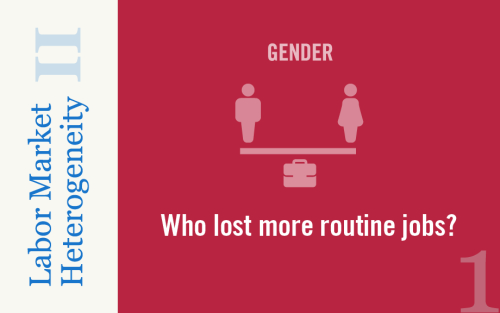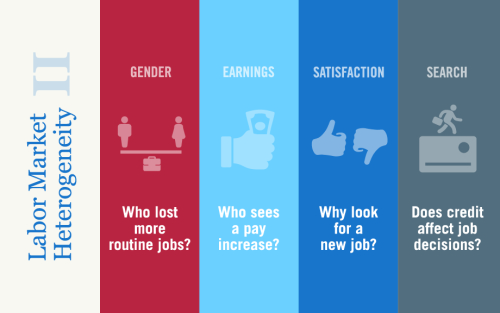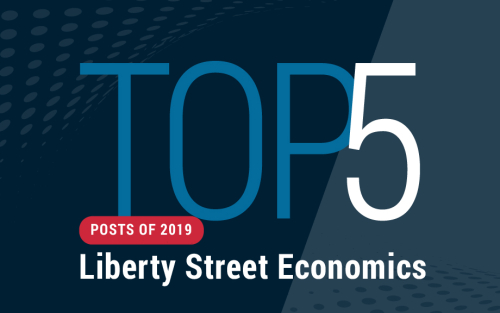Is the Tide Lifting All Boats? A Closer Look at the Earnings Growth Experiences of U.S. Workers
Women Have Been Hit Hard by the Loss of Routine Jobs, Too
Firm‑Level Shocks and GDP Growth: The Case of Boeing’s 737 MAX Production Pause

Events specific to large firms can have significant effects on the macroeconomy. The recent pause in Boeing’s 737 MAX production is a striking example of such an event or “shock.” This post provides a back-of-the envelope calculation of how the “737 MAX shock” could impact U.S. GDP growth in the first quarter of 2020.
Reading the Tea Leaves of the U.S. Business Cycle—Part Two

New work by Richard Crump, Domenico Giannone, and David Lucca finds labor market data to be the most reliable information for dating the U.S. business cycle.
Reading the Tea Leaves of the U.S. Business Cycle—Part One
Banking System Vulnerability: Annual Update

A key part of understanding the stability of the U.S. financial system is to monitor leverage and funding risks in the financial sector and the way in which these vulnerabilities interact to amplify negative shocks. In this post, we provide an update of four analytical models, introduced in a Liberty Street Economics post last year, that aim to capture different aspects of banking system vulnerability.

















 RSS Feed
RSS Feed Follow Liberty Street Economics
Follow Liberty Street Economics